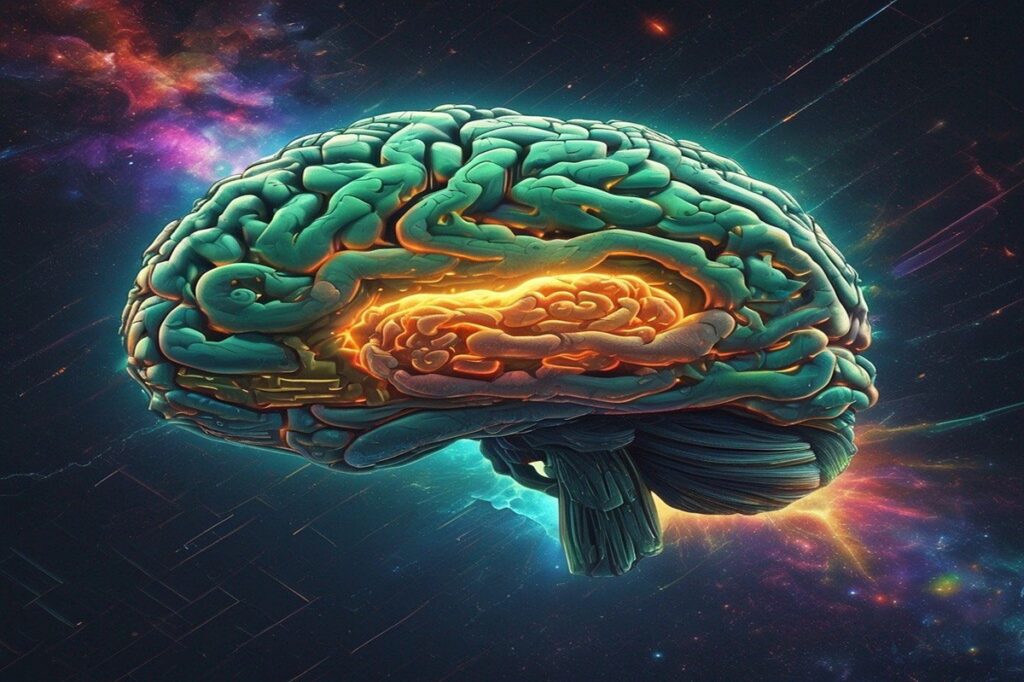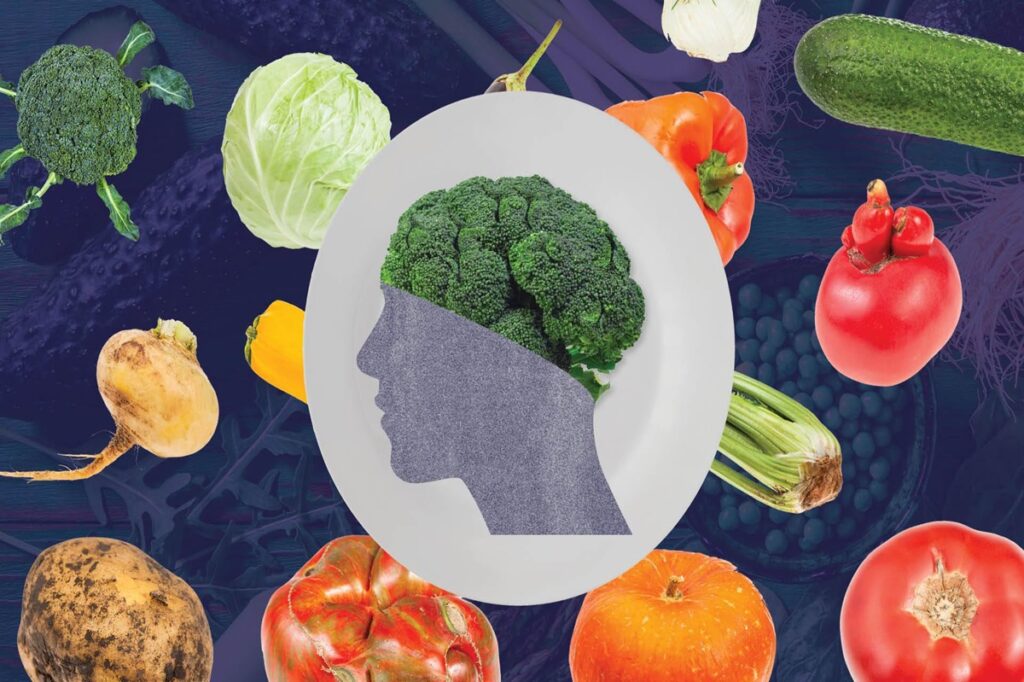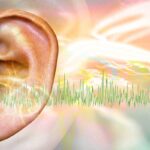
The human brain is called the most complex structure of the known universe. It manages everything, from the beating of our heart to the movement and thinking processes of our mind, right down to emotions and memory.
The ways of keeping a healthy mind functioning are very important for living a quality life. In this paper, we will delve into what brain health encompasses, what factors influence it, and how practically to keep this organ at the best possible function.
Table of Contents
The Brain: Marvel in Nature
The human brain is a marvelously intricate collection of one hundred billion specialized cells called neurons. These are in charge of sending and receiving information to and from all parts of the body. Interconnected in extremely complex patterns, neurons allow the brain to do virtually anything: processing sensory information, making decisions, controlling body functions—you name it. In addition, the mind is very flexible: it can be rearranged for new experiences, some learning activities, and even injury—a property known as neuroplasticity.
Despite its amazing capabilities, the human mind is under constant threat from various factors that affect its functioning. The threats include those linked with genes, environmental factors, and lifestyle choices. The Knowledge that how to protect and improve the health of the human mind is critical for the proper functioning of the brain and also general well-being.
Brain Health; Why Important?
Brain health is a state in which a mind performs all its functions, among them cognitive processes—memory, learning, solving problems, and decision making—and control of emotional and motor processes. Mind health is very critical in living a productive and fulfilling life, as it determines everything from excellence in academics and career to relationships and even mental health.
While there may be age-related brain changes, including neuron loss and the slowing down of the speed of processing information, they do not need to define a decrease in mind functioning. Proper care can easily maintain or even improve cognitive abilities far into old age.
Factors that influence brain health
Brain health seems to be determined by aspects both within and outside our control. For example, Alzheimer’s disease and most other dementias have a genetic component. On the other hand, however, lifestyle factors, such as diet, exercise, sleep patterns, and mental stimulation, are very relevant and may be strongly supportive or actively undermine good mind function.

Diet: A steady supply of good food to the mind ensures maximum performance. A diet replete with fruits, vegetables, whole grains, lean proteins, and healthy fats gives a person what it takes in fuel for the brain cells to work properly. Omega-3 fatty acids are major constituents of brain cell membranes in form and function and can be found in fish and flaxseeds. Antioxidants found in berries and leafy green vegetables protect the mind against oxidative stress, resulting in cognitive decline.
Exercise: is an active promoter of the health of our mind. The increased amount of blood supply to the brain will help in the growth of new neurons that are responsible for a much better cognitive functioning system. Aerobic exercise, which includes walking, jogging, swimming, and other such activities, has been associated with an enhanced ability in memory and learning. This occurs due to the stimulation of the release of growth factors necessary for the development of brain cells.
Sleep: The mind requires sleep to undergo repair processes for the mind and to consolidate its memories. When one is asleep, there is a process by the name glymphatic clearance, which clears waste products that are neurotoxic from the brain tissues. This can result in a deficiency of sleep causing impairment of cognitive functions due to chronic lack of sleep, in the development of mood disorders, and especially in an increased risk for developing neurodegenerative diseases.
Mental Stimulation: Engaging in mentally stimulating activities like reading, solving puzzles, or learning new things is excellent for the health of the mind as a form of exercise to the plasticity of neurons. Such activities challenge the mind to create new pathways that will aid in the performance of their functions. In this respect, lifelong learning and intellectual engagement have some association with decreased risk due to cognitive decline in old age.
Social Interaction: A mind is a social organ. Getting involved with others through conversation, group activities, and social networking facilitates the activity of the brain. Good social connections put one at low risk of mental illnesses such as depression and dementia.
Stress Management: So, chronic stress can turn out to be bad for the health of the human mind. For example, prolonged exposure to one or other stress hormone, like cortisol, can independently kill some brain cells, especially those in regions responsible for memory and emotional control. This will help in the reduction of stress through techniques like mindfulness meditation, deep breathing, and yoga, thereby protecting the mind from threats.
Facts about the human mind
>>It is composed of 75% water. Keeping your body hydrated will help you with proper brain function.
>>The human brain increases its size by the age of 18
>>Headaches are caused by chemical reactions in the mind
>>It contains one hundred billion neurons
>>High cholesterol can negatively affect the human mind
8 ways to increase brain power
Like other organs of the body, mind health is also ensured by simple lifestyle choices. The right diet, active life (physical and mental), and social engagement are primary for a strong and healthy mind.
Eat right diet

>>Eat more saturated and trans fats, such as those found in olive oil and fatty fish
>>Get plenty of DHA, an omega-3 fatty acid, a building block of the mind. DHA is present in fatty fish and fortified foods such as juice, milk, eggs, tortillas, yogurt, and supplements.
>>Eat a diet high in vitamin E; this vitamin is resplendent within milk, butter, eggs, nuts, whole grains, and dark leafy greens such as spinach.
>>Consumed more of the food containing lutein; lutein is a natural antioxidant and hence promotes the health of the mind. It is found in leafy green vegetables.
>>Eat fruits and vegetables rich in polyphenols, which help reduce inflammation.
Be physically active
>>Make sure to sleep for seven to eight hours
>>Quit smoking and stay away from alcohol
>>Maintain a healthy weight to reduce the risk of diabetes, high cholesterol, and hypertension
Stay mentally active
>>Participate in mind-stimulating activities, such as reading, crosswords, and learning a new language.
>>Meditation helps reduce stress as it smoothes the vagus.
Stay socially connected
An active social life means having more friends and participating in social interactions. It has been found that new brain cells are formed and brain repair occurs more quickly in people with higher social interactions. Therefore, it is important to give priority to friends and family.
Regular exercise
Increase your heart rate and blood flow to your mind and body by doing cardiovascular exercise regularly. In several studies, physical activity has been linked to a reduced risk of cognitive decline.
These benefits are probably due to increased blood flow to the mind during exercise. It may also counteract some of the natural declines in mind connections that occur as people age, effectively reversing some of the problems.
Aim for 30-60 minutes of activity several times a week. Walking, swimming, tennis or any other moderate aerobic activity that increases your heart rate will suffice.
Meditate
5-10 minutes of meditation will not only help you sleep better, but it has also been proven to help deal with anxiety, sadness, exhaustion, and confusion. Benefit from meditation because it can help them fall asleep and stay asleep. It also helps with brain swelling. Most people find that they not only sleep better but they can concentrate better and are more alert.
Proper sleep
The health of your brain is affected by how well you sleep. According to some views, sleep helps your brain eliminate abnormal proteins and consolidate memories, improving your overall memory and brain health. You should get seven to eight hours of uninterrupted sleep per night rather than two or three-hour chunks. Continuous sleep gives your brain a chance to recharge.
Good healthy food
A diet rich in omega-3 fatty acids, low in saturated fat, and rich in nutrients found in leafy green vegetables and whole grains will help keep your brain healthy throughout your life. For many people, this means following a Mediterranean diet, which emphasizes fish, fruits and vegetables, nuts, olive oil, and avocados while minimizing red meat consumption.
FAQ,s
How does sleep affect the mind’s fitness?
Adequate sleep is critical for mental fitness because it facilitates consolidating memories, cleaning toxins, and refreshing. Poor sleep can impair characteristics, reminiscence retention, and temper.
What are the cautious symptoms of declining brain fitness?
Warning symptoms and symptoms consist of forgetfulness that influences each day life, trouble concentrating or making decisions, modifications in temper or personality, and demanding situations with acquainted tasks.
How does intellectual stimulation contribute to mind fitness?
Mental stimulation, including reading, fixing puzzles, getting to know new skills, and highbrow conversation, facilitates cognitive characteristic and promotes mind fitness.
What is the role of hydration in brain health?
Staying hydrated is important for brain function, helping maintain concentration, memory, and nerve signal transmission throughout the brain and body.
Are some foods beneficial for brain health?
Yes, foods rich in antioxidants (berries), omega-3 fatty acids (fish), leafy greens (spinach), nuts and seeds (walnuts), and whole grains support brain health by reducing inflammation and providing essential nutrients. stands by.
How does social interaction benefit brain health?
Regular social interactions and meaningful relationships enhance cognitive function, reduce the risk of cognitive decline, and improve overall mental well-being.
Disclaimer
All the articles published in “Health Alpha” are prepared based on various sources like doctors, the internet, experts, and books. The facts and information mentioned in the article have been checked and verified by Health Alpha.
All instructions have been followed while preparing this article. The related article has been prepared to increase the information and awareness of the reader. Health Alpha does not make any claims nor take any responsibility regarding the information and information provided in the article.
For more information about the related diseases mentioned in the above article, consult your doctor and do not take any medicine without medical advice.
Views: 0




Pingback: Monkeypox-Global health emergency second times in 02 years
Pingback: Seasonal fever-6 Causes are there to get to know about it
Pingback: Love- Lights Up the Human Brain-5 Reasons must be read